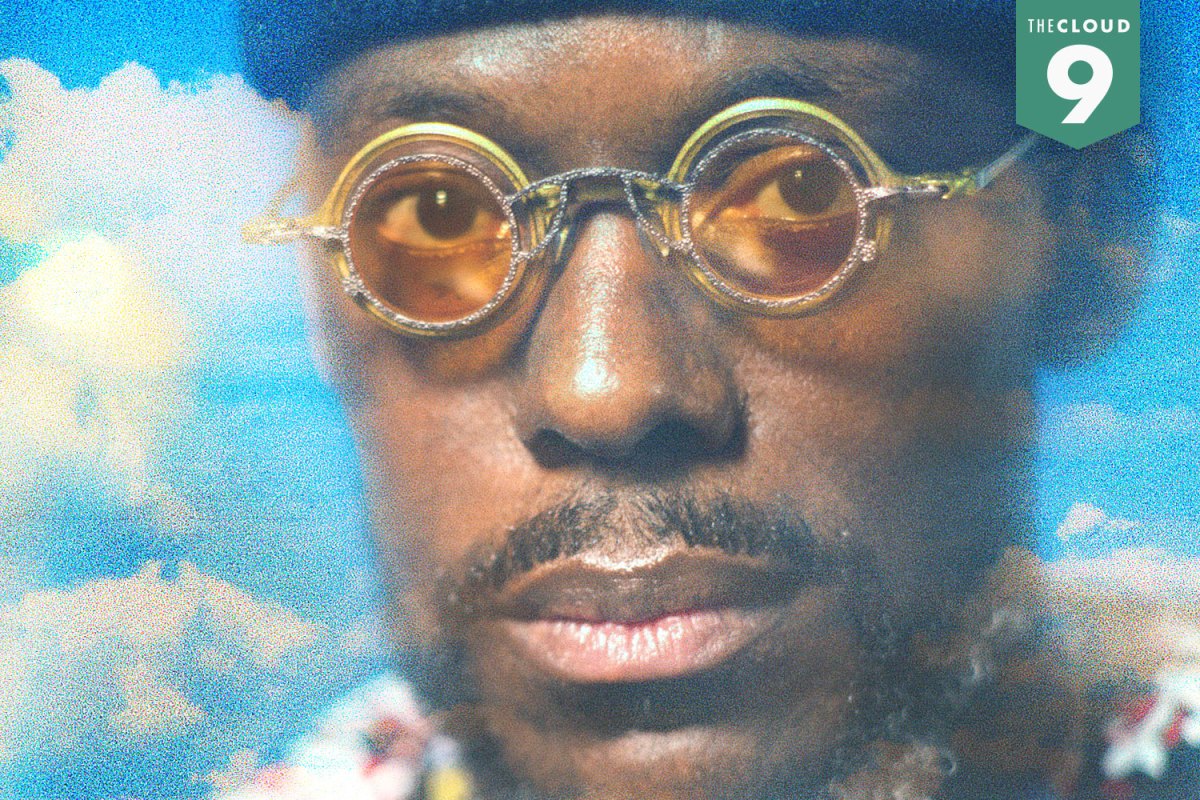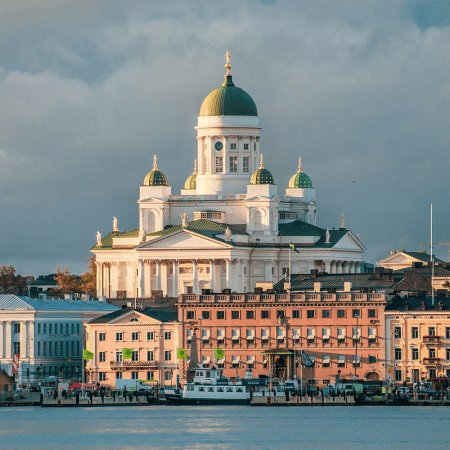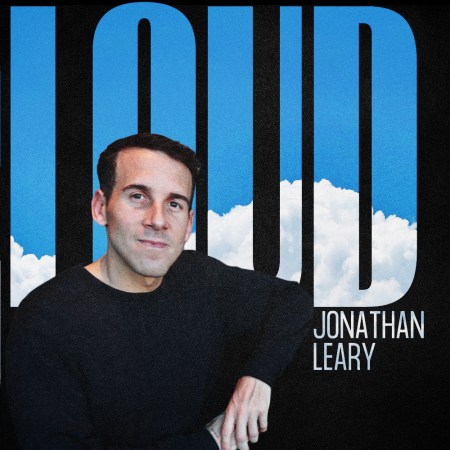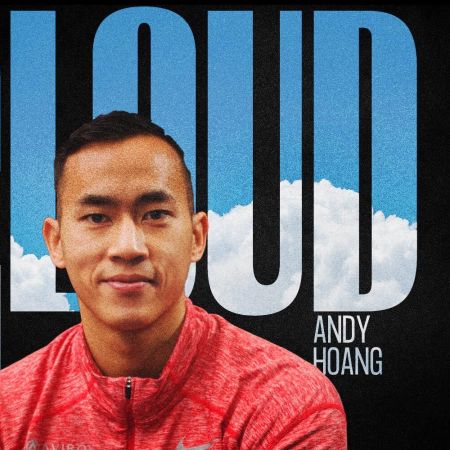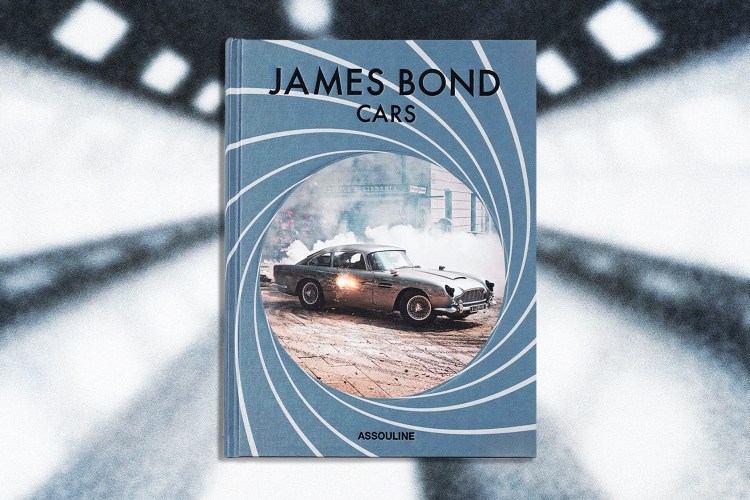Introducing The Cloud Nine, a series dedicated to unraveling happiness — in all its wonderful, pesky forms. In each edition, we’ll ask an interesting person exactly nine questions about their personal pursuit of happiness. How it’s intersected with success, love, memory, drugs, art, grief, exercise…you name it.
Marcus Strickland has always found strength in the phrase “I am my ancestors’ wildest dream.”
But when the 43-year-old, Grammy Award-nominated saxophonist set about recording his latest album, he took the idiom a step further, conceiving an eight-track, Afro-Futuristic ode to the improbability of our Earthly existence. He named it The Universe’s Wildest Dream.
As far as entry-points to discussions on climate change typically go, this makes for an uncommonly celebratory time capsule. Strickland spurs awareness by reminding us of the absurdity of our collective gift — instead of petrifying us with the specter of planetary doom.
Complex themes abound, to be sure; from Silicon Valley’s obsession with terraforming Mars, to the centuries-long Black struggle to avoid annihilation, to the call of a mourning dove heard through the window of lockdown-era apartment. But Strickland’s capacity to find gratitude, glory, and yes, happiness, in a time like this, is a master stroke for a seen-it-all vet who initially got his start in the New York jazz scene back in the late 1990s.
Playing the soprano, tenor and alto saxes, plus his bass clarinet (the first instrument he picked up when recording the album), and collaborating with old friends like drummer Charles Haynes, Strickland will head out on a multi-city tour this year. His album is now available to stream, with other records available online.
We found him a perfect candidate for this special first edition of The Cloud Nine, as a creative used to operating on the cusp of happiness and pain. Is it possible for a musician — a living jazz legend, no less — to be happy in his art? Below, we speak with Strickland about Aretha Franklin, Avatar and how his expectations for happiness have changed as he’s gotten older.
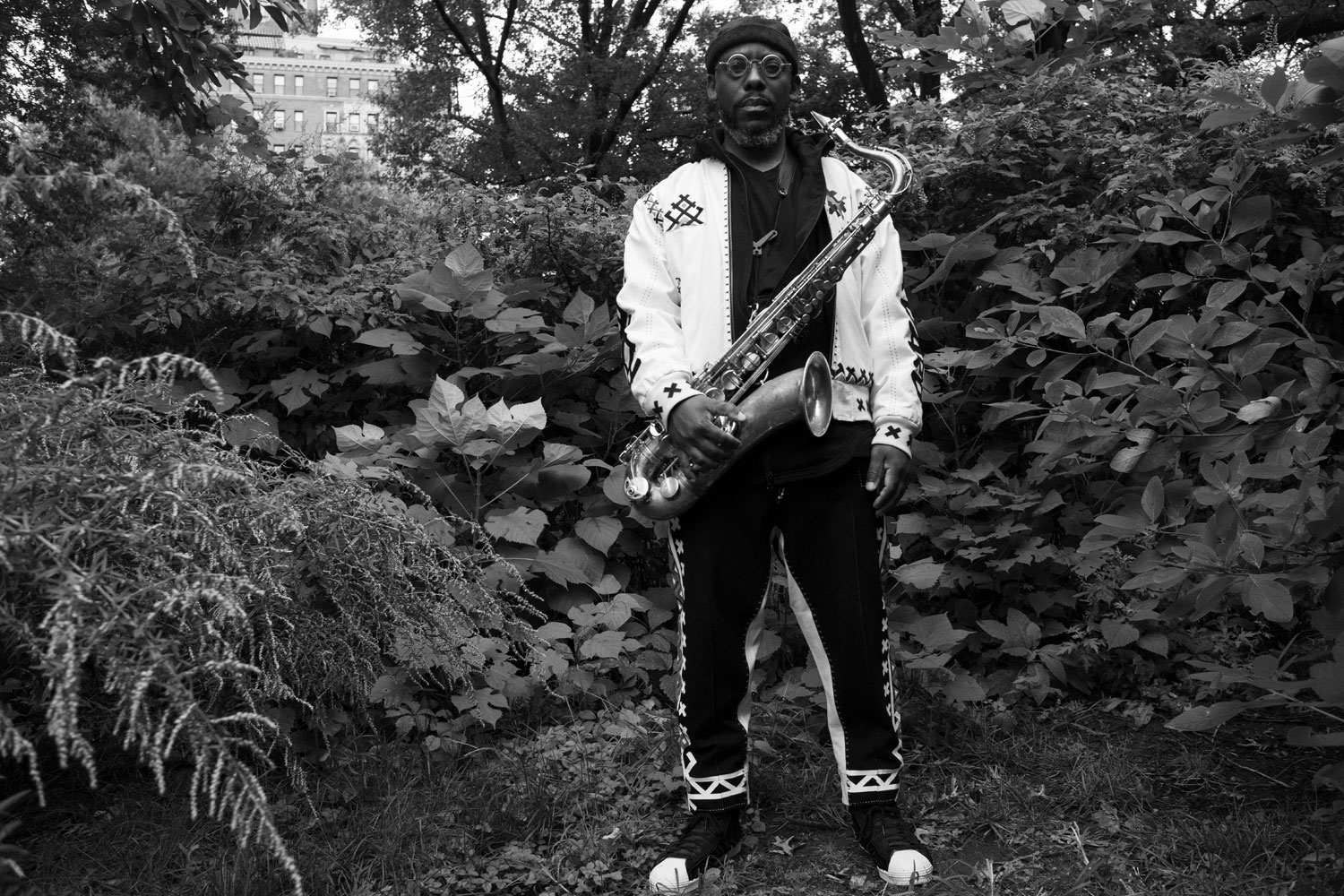
1. Where do you derive happiness as a musician: the studio or the stage?
I feel that today’s musician, especially today’s jazz musician, is actually kind of torn between the studio and the live performance. The reason I specify jazz, is because we’re all about the moment. What we’re capturing in the studio is the particular moment that you’re playing the solo over this song. You can basically do anything you want. It becomes a question of taste. In the studio, I become a chef. I have all these ingredients. What is it exactly that I’m gonna make out of all these choices? When I’m on stage, I get my happiness from the heightened sense of immediacy. It’s almost like being a comedian. I think that’s the most extreme version of what I am. A comedian has to immediately get gratification in order to feed the very thing that they’re doing. If the current joke doesn’t get the reaction expected, they immediately have to adjust to fit what energy is in the room. The best of them are gonna be the ones that are mostly in the moment. So I think there’s a lot of satisfaction that comes from it. From being so in the moment that you never expect what’s gonna happen. That’s kind of like a heightened sense of living, I feel. I get different things from both and I’m happy that that both of them exist.
2. What sabotages your happiness?
I guess that would be whenever I’m thinking about anything else but now. That would be the most general way to express that feeling. If I’m thinking about the past or I’m thinking about the future, I’m not concentrating on what I can do now. That’s my most general explanation for what would be cloudy for me.
3. What do you mean by this phrase, The Universe’s Wildest Dream?
During the lockdown, instead of just hurrying to a gig or rehearsal in an Uber, I had time to actually walk in the park, to talk to people and get to know about facets of life that I haven’t really experienced yet. I met a lot of activists, ’cause when people actually have time to think, as we saw, people start to rebel. They’re saying, “Hey, this isn’t right. Let’s check this out.” I ran into some activist farmers. I ran into many activists in general. And I’m a very curious person, I ask questions. I realized that I was yet to really focus on anything more macro than music. Like with music, I’m thinking culturally, right? And that’s quite macro compared to how most people probably think about music. But I started thinking, how could I contribute towards the awareness of the most immediate thing for this planet? And that being, just lowering the temperature two degrees. That’s all we have. If everybody wants to stop what they’re doing, stop the oppression, stop the wars, stop the capitalism, all that stuff, just think, “Hey, could we just concentrate on this one thing?” It would be to lower the planet’s temperature by two degrees. So I was thinking of, “Okay, how can I, as an artist, express this in the best way?” The title has to express it. There’s this phrase: I’m my ancestors’ wildest dream. I’ve heard that that so many times and I like that. I like what that conjures inside of me. But then I started thinking more macro…the universe’s wildest dream. And I’m talking about Earth, because Earth is a life-sustaining planet. That is something we haven’t seen yet other than us. All of our references, from Avatar to Alien, to all these other movies, they have to do with references to us.
The aliens in Avatar are blue. The creatures in Alien, they have limbs and a head with a big giant brain. You know, just exaggerated forms of what we are. The only reference we have is us. So that’s the thing I’m trying to get across to people is that, don’t really even think about your own lifespan. Think of the legacy. It’s like, we actually sustained life on this planet. That is a miracle. It is an absolute miracle within this vast universe. You can travel 33 million miles if you have the fuel or the lifespan. And you’ll probably come across a planet that Kepler found that is in the Goldilocks Zone in another galaxy. And hopefully when you finally find it, after all that, maybe there will be life [laughter.] But other than that, I think we’re pretty much the wildest dream that the universe has. So yeah, it all started with a post that I made on Instagram. I remember I was going on a date with this lovely woman and she was asking me, “What are you doing these days?” And I said, I’m trying to think of a way, I’m trying to think of all the things that I’m talking to you about and try to put it into the music. I wanna make a post that is absolutely in the moment. So I did, I made a post and I just played my bass clarinet. I got my pedals. I played over a drone. That exact audio recording became the first track of the record, it’s called “Prayer.” So that kind of set the tone.
4. Do you think it’s important for a musician to be happy in order to create great art?
Definitely not. Because a lot of the heroes that I have were tortured souls. But I feel the default programming for any human is to find happiness…to survive, first of all, but also to enjoy their life. That’s definitely the default. And I do think that being happy definitely makes you a much more functional human being. At the same time, it’s the adversities that forged these geniuses that I look up to, like Charlie Parker, Miles Davis, John Coltrane, Stevie Wonder, Ray Charles. The list goes on. Aretha Franklin. For all of them, it was the adversities that forged what I conceive as their genius. They didn’t have the resources to do what’s normal, and as a result, did something completely different, which most people would never even dream about imagining. And I think that’s what makes a genius. Like, my favorite architect in Spain, what’s his name? Ah, Gaudi, yeah. Antoni Gaudi. He didn’t do well in school. He did horribly in school ’cause he wasn’t thinking on that level. He probably was on the spectrum. But it’s because of his outside thinking that his creations were so much different than what had preceded before.
5. In that vein, are there art forms outside of music that you turn to find inspiration, and specifically to find joy?
Oh man, everything. I just allow the world and its glory to inspire me. There’s so much here. It’s why I can’t really be the purist who sometimes exists within art forms. There’s some people who feel that if jazz doesn’t have the spang-a-lang-lang, it’s not jazz, right? And there’s people who feel that if R&B doesn’t have a certain aspect, it’s not R&B. And my answer to that is everything is a mutt. Everything is mixed with what came before. I’m constantly talking to my students about compositions, because I teach at a jazz school. And one thing that was taught to me a whole lot when I was in school, while learning music, was that you have to learn your standards. Learn your standards. Well, what is the standard? Standards are these show tunes or soundtrack tunes to movies. They were very popular and then they would get covered by jazz musicians. They would take the tunes, maybe re-harmonize them, or solo over them. Because the tune was already popular, it had both this expectation of popularity and also this respect as a great tune. But I said, that was the standard at a certain point. There was a point in time where the emphasis was writing your own tunes. You have people like Joe Henderson and Wayne Shorter and John Coltrane, Thelonious Monk, all these cats were writing their own music and they wrote it with their own harmonic sensibility. So it kind of blows their mind when I start exposing this to them, because all around the country, we’re still told, “Hey, learn this tune from 1915. That’s gonna get you gigs.” I’m here to tell you, that’s not what gets you gigs. What gets you gigs is being as open as possible and trying to learn as many different types of music as possible. Being a holistic musician, not somebody who’s just specialized.
6. Is there a happy memory from life that you turn to often?
One thing that I like to refer to a lot when I want to recharge my strength is the moment that I realized that I was about to play back-to-back weeks at jazz showcases in Chicago with Roy Haynes, who played with Charlie Parker, Lester Young. I mean, like, he played with everybody. I played with him and then the very next week at the same venue with Jeff Tain Watts ,who saw that I was playing with Roy Haynes. That was kind of like the straw that broke the camel’s back. He said, “If you’re playing with Roy Haynes, I want you to play with me” [laughter]. And Jeff Tain Watts is probably the most innovative drummer of today in my opinion. Those guys are people I grew up listening to all my life. So the moment that I realized what I was doing, that’s something that I refer to whenever life tries to tear me down, or someone tries to tear me down, or even an institution tries to tear me down. I gained strength from that.
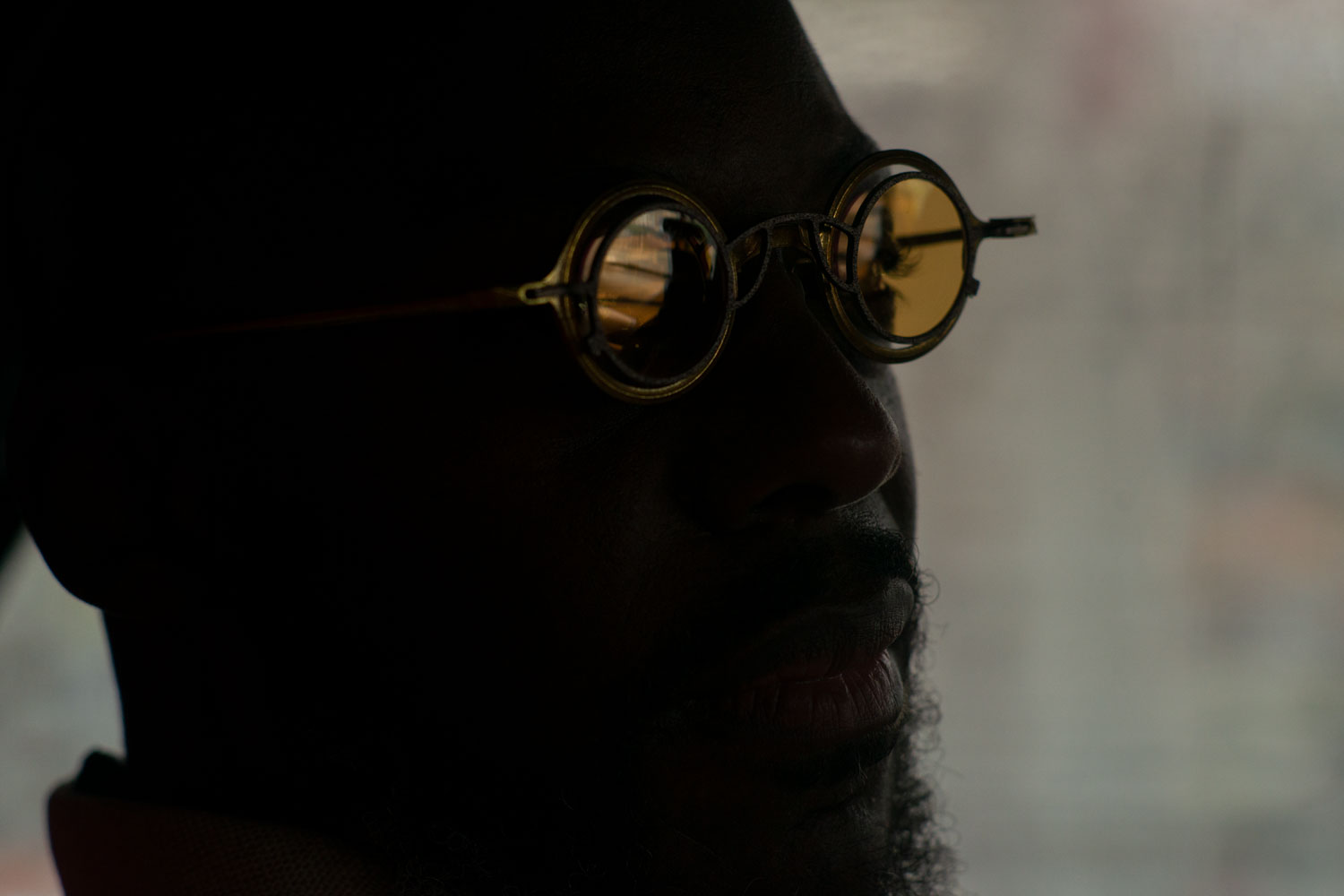
7. How would you characterize the relationship between happiness and success?
I feel that if you’re picturing what your perfect life is and you’re pursuing it, that the pursuit is the happiness, and the fact that you’re still pursuing it, that’s the success. It’s not about it being absolutely as perfect as you imagine in your mind, because that just doesn’t exist. But you just see it as that carrot that keeps the rabbit running. Or whatever they use on the wheel for the hamster. Keep the hamster going [chuckle]. But as a result, a lot of productivity happens because you’re chasing something that is absolutely not attainable. And it’s that chase of it, that’s the thing…That’s the very thing that’s generated both happiness and success for me.
8. How have your expectations for happiness changed as you’ve gotten older?
Oh, I think the biggest thing for me, maturing, has been the realization that I do not have control over things outside of me. The more I realized that, the more happy I become. Because the more that you do that, the more that you just do what you can do. Like this record…it’s what I can do towards the problem. It’s a very macro problem that requires a whole lot of people getting their heads out of their asses and actually concentrating on the actual, most immediate problem. But this is what I can do as an individual. I’m doing my best within my resources towards that problem. And that in itself generates a feeling of happiness, of prosperity, of contribution to something bigger than the eye. Like my lifespan is not gonna even really encounter what I’m talking about [laughter]. So I feel that that’s the main thing that’s kept me kind of anchored, that’s given me a compass.
9. Are you are able to find happiness in grief?
Well, during the lockdown, all my faculties were taken away from me. I couldn’t perform. I couldn’t make money at music the normal way that I did. A lot of things just dropped. The floor just dropped from underneath me and so many others. Some people flourished during the lockdown. But it kind of forced me to look into a different way of coping. What I realized was that my brain is wired to find a problem, like immediately find a problem. And I started realizing that that was the very thing that was keeping me up at night and making me unhealthy. I’m always trying to find this immediate problem. So I started looking into meditation. My questions led me to a guy named Mooji. A friend of mine urged me to check him out, and I did one of this meditation sessions that he had on YouTube. What I felt was this relaxation of my brain. It felt like a massage. Literally, like all the pressure that was there and the pain and all the shame and all that stuff. It just left. Because it’s a state of the mind that we don’t naturally get to. We’re constantly getting fed stuff, we’re constantly processing stuff, we’re constantly trying to problem-solve. And most people are talking about what to do rather than what not to do. So, yeah, it was absolutely mind-blowing how much of a massage feeling I experienced. It felt like somebody went inside of my skull and just relaxed every single inch of my brain. Yeah, Mooji’s bad. That’s a bad dude [laughter]. Usually, with things like that, I don’t even pay attention. I was like, “Oh, sure, that’s somebody… That’s some BS. I’ve seen that before,” but this time I actually tried it. I actually humored it and it was because of the situation. That’s remarkable. It taught me the power of meditation. I’m very grateful for that.
The Charge will help you move better, think clearer and stay in the game longer. Subscribe to our wellness newsletter today.
